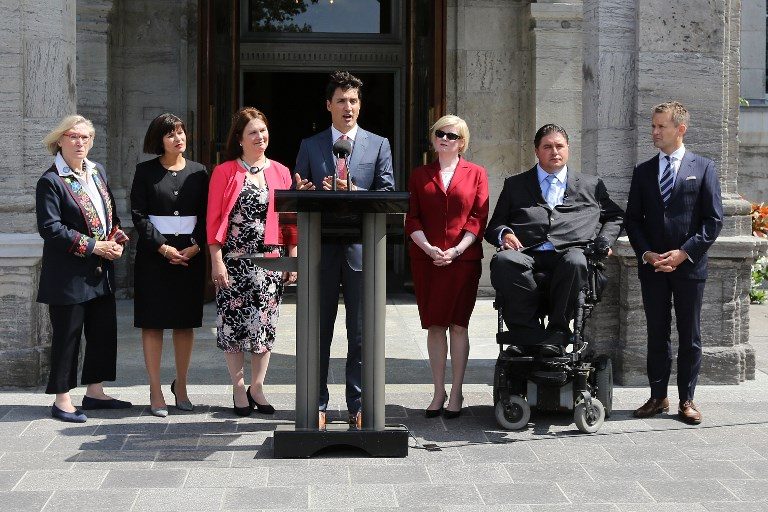SUMMARY
This is AI generated summarization, which may have errors. For context, always refer to the full article.

OTTAWA, Canada – Canadian Prime Minister Justin Trudeau announced Monday, August 28, the dismantling and remaking of the government’s “colonial” era apparatus to better deal with Canada’s 600 indigenous tribes and their treaty rights.
Canada’s indigenous and northern affairs ministry will be split in two and senior members of Trudeau’s cabinet have been appointed to helm each new part.
“We have pushed the creaky old structures as far as they can go,” Trudeau told a press conference.
Past “engagement with indigenous people was… done in a paternalistic colonial way and if we want to truly move forward in true partnership with reconciliation, we need government and Canadians to look differently at the relationship with indigenous peoples,” he said.
“It is time to recognize that we need new structures.”
Historically, a single minister has represented indigenous peoples’ interests in cabinet, but Trudeau said it now requires two separate tracks, one to improve socioeconomic conditions and the other to increase self-determination.
Former health minister Jane Philpott will be tasked with closing the socioeconomic gap between indigenous peoples and non-indigenous Canadians, as well as ensuring day-to-day services to tribes including housing, education and potable water.
Carolyn Bennett, meanwhile, will steer “foundational changes” to laws, government policies and practices in order to advance tribes’ self-determination and self-government.
According to the federal government, Canada’s laws and structures for managing aboriginal treaties needed updating also because they were not designed to support Inuit and Metis peoples, who gained similar rights to other indigenous people in recent decades but have unique histories, circumstances and aspirations.
“To put it plainly, the level of the ambition of this government cannot be achieved through existing colonial structures,” said a statement.
According to the government statistical agency, there are more than 1.2 million indigenous peoples in Canada.
Many indigenous communities face gross poverty and desperation that breeds abuse, suicide and crime. – Rappler.com
Add a comment
How does this make you feel?
There are no comments yet. Add your comment to start the conversation.